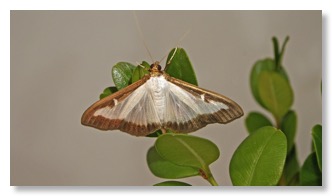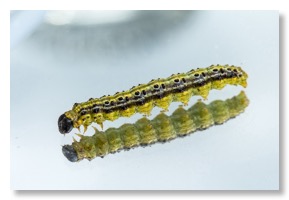Landscape Watering
June 25, 2024
With the extreme temps we've been experiencing recently, it's important to keep your landscaping well hydrated!
From The Iowa State University Extension and Outreach site:
These watering tips apply to all areas of the landscape…
From The Iowa State University Extension and Outreach site:
These watering tips apply to all areas of the landscape…
- Check soil moisture frequently and water only when needed. Irrigation is needed when the soil feels dry to the touch down 1 or 2 inches.
- Water the root zone, not the foliage. Roots absorb the water, and wetting the foliage doesn't provide moisture the plants can readily use. Plus, wet foliage is more likely to have disease issues!
- Water slowly, deeply, and infrequently. Avoid a quick splash that can promote shallow rooting, leading to poor drought tolerance.
- Water in the morning to allow wet foliage to dry quickly in the morning sun. Morning watering also ensures the plant is fully hydrated as it goes into the hottest part of the day.
- Thoroughly wet the entire root zone. Apply water until the soil is moist to at least 5 or 6 inches. Unsure how deep it is? Water and dig a hole to see.
- Use mulch to help conserve soil moisture and reduce watering frequency. Mulch can be used in nearly all garden settings, including vegetable gardens and containers.
- Don't overwater. Check the soil moisture frequently, but only apply water when the soil is dry to the touch 1 or 2 inches down.
- Set an alarm or timer on your phone so you remember to turn off sprinklers, drip irrigation systems, or soaker hoses. Water timers can also be purchased to avoid running water unnecessarily.
- For garden areas such as annual beds, containers, hanging baskets, and vegetable gardens that require frequent watering, set up a watering system such as soaker hoses or drip irrigation systems. Assemble them in spring before plants get large. These systems can help save time and provide water directly to the root zone.
- If you will be away from your garden for more than a few days, have a family member, friend, or neighbor water. Newly planted plants and containers cannot go for long periods without water.
Organically Grown Seedlings
April 21, 2024
 Deal's has organically grown seedlings this spring! Shop early for the best selection.
Deal's has organically grown seedlings this spring! Shop early for the best selection.Tomatoes, Herbs, and Onions now available. Peppers are now available but in very limited supply.
See a complete listing (as of today) on our Home Page news box - Organic Seedlings.
Contact us at (937) 426-2118, use our contact form, or come visit our office in the Barn at 3454 Dayton-Xenia Road in Beavercreek.
Box Tree Moth
April 11, 2024


Ohio Department of Agriculture
April 09, 2024
The Ohio Department of Agriculture (ODA) is issuing a quarantine for six counties in southwest Ohio to prevent the spread of an invasive insect – the box tree moth.
Beginning April 11, 2024, Butler, Clermont, Hamilton, Greene, Montgomery, and Warren counties will have regulations in place restricting the movement of boxwood shrubs out of the area. ODA is encouraging landscapers and residents in these counties to check the quarantine boundaries and not transport the plants outside of the quarantined area.
A map of the quarantined zone can be found here.
Box tree moths were detected in Ohio in June 2023, near the border of Hamilton and Clermont counties and they have been confirmed in the quarantined counties listed above. Box tree moths are an invasive pest from East Asia that poses a threat to boxwood plantings and the horticulture industry. Boxwood is an important ornamental shrub that is a valuable part of Ohio’s nursery stock economy. Federal and state officials are asking industry and the public to report suspected box tree moth sightings through ODA’s reporting tool.
Ohio Department of Agriculture plant health inspectors and United States Department of Agriculture staff will be conducting inspections and placing traps to monitor populations. Box tree moths are not a threat to Ohio’s native plants.
Residents can look for and report any potential infestation by following these steps:
Familiarize yourself with the insect’s appearance and evidence of damage on boxwood shrubs.
Check any boxwood plants you have for signs of box tree moth life stages.
If you find any evidence of infestation, take a picture, and report it.
Evidence of damage include chewed, cut, or missing leaves, yellowing or brown leaves, white webbing, and green-black excrement on or around the plant.
Box tree moth caterpillars are green and yellow with white, yellow, and black stripes and black spots. Adult box tree moths are nocturnal and have white, slightly iridescent wings, with an irregular thick brown border.
Landscape professionals, nursery, and others in the green industry can contact the Plant Pest Control Section if they have any questions about the new regulation at 614-728-6400.
Please report any box tree moth sightings to ODA's Division of Plant Health.
Link to Article
Spring Plants Arriving
April 05, 2024
We have just started picking up our spring plants. This year we will have some new choices along with reliable well known plants.
Check in often for new deliveries and the best selections.
Check in often for new deliveries and the best selections.
Solar Eclipse Updated
April 05, 2024
Dayton is one of the top 12 locations in the United States to watch the eclipse on April 8.
Deal's has solar eclipse glasses in stock… it's essential that you NOT look at the eclipse without the protection of special glasses.
Come join us on April 8 to watch the eclipse!
Dayton area eclipse schedule
Beavercreek eclipse iinformation
Updated 04/05/2024 @1830
Deal's has solar eclipse glasses in stock… it's essential that you NOT look at the eclipse without the protection of special glasses.
Come join us on April 8 to watch the eclipse!
Dayton area eclipse schedule
Beavercreek eclipse iinformation
Updated 04/05/2024 @1830
Spring is almost here!
March 09, 2024
Spring arrives on March 19! Now's the time to begin planning the clean up of your landscaping for a new growing season. And, thinking about updating your gardens and plantings? Spring is a great time for refreshing the look of your home with new and updated plantings.
Deal's can help! Contact us at (937) 426-2118, use our contact form, or come visit our office in the Barn at 3454 Dayton-Xenia Road in Beavercreek.
Deal's can help! Contact us at (937) 426-2118, use our contact form, or come visit our office in the Barn at 3454 Dayton-Xenia Road in Beavercreek.